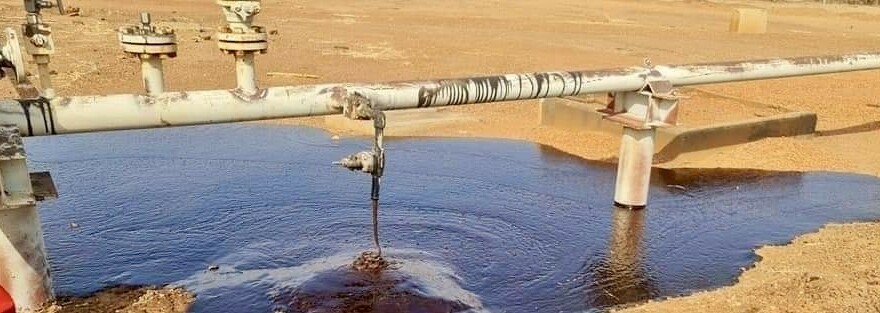Seven women in the Jad Al-Seed area of Abu Karinka locality in Sudan’s East Darfur State have suffered miscarriages due to crude oil leaks from pipelines, officials have revealed.
This environmental pollution has also caused the deaths of a significant number of livestock in the around the Zarqa Umm Hadid oil fields.
The executive director of Abu Karinka locality, Zakaria Haroun, told Radio Tamazuj, on Monday: “The environmental pollution caused by crude oil leaks from the pipelines has led to miscarriages among pregnant women and the death of animals.”
He added: “There have been extensive damages to oil wells, resulting in environmental pollution that caused seven women from a single village in the area to miscarry, in addition to the deaths of a large number of livestock.”
Haroun highlighted the presence of skin diseases among villagers near the oil fields and noted that a general lethargy affected them in the mornings due to the harmful gases in the air. He urged health authorities to intervene, especially with the rainy season approaching.
A resident of Jad Al-Seed, Al-Fatih Ismail Hassan stated: “The mixing of sewage water in the oil fields with crude oil leaking from the pipelines has resulted in environmental pollution, causing diseases among both residents and animals.”
He called on the local and state authorities to visit the sites affected by pollution, establish a treatment center, provide ambulances to transport the affected to Al-Daein city, and ensure security for the oil sites.
Veterinarian Hamid Mohammed Abdel Nabi confirmed a direct link between the miscarriages, livestock deaths, and the polluted environment. He explained that the presence of crude oil on the ground leads to the contamination of plants consumed by animals, which can cause poisoning that, might lead to death or miscarriage. Humans are also harmed by the environmental pollution.
On May 6, an unidentified person set fire to the largest oil field in East Darfur, causing a significant crude spill. East Darfur hosts about 13 oil fields, the largest of which are the Sufyan and Zarqa Um Hadid.




